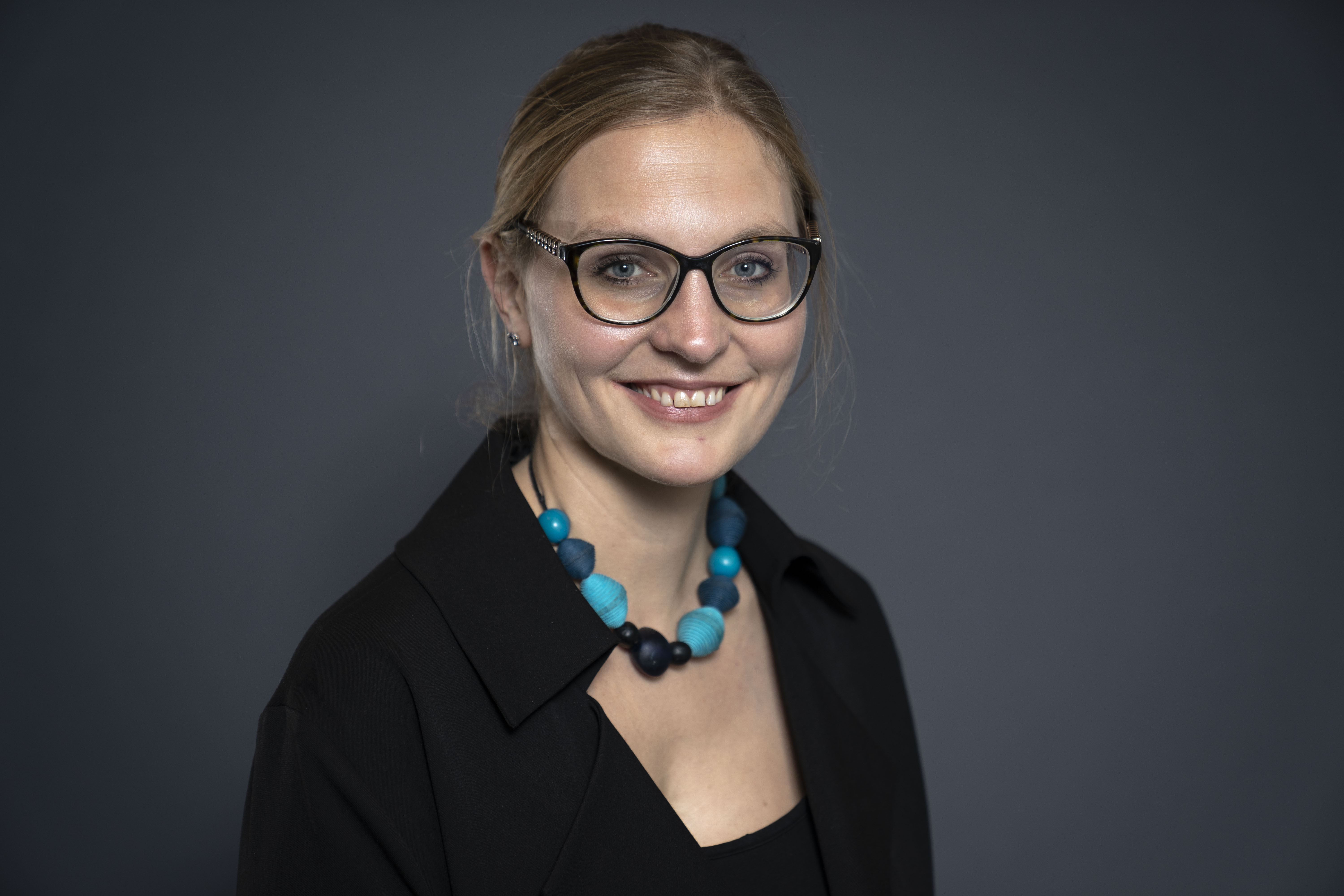Anke Karabanov
Research leader

Project title
Reconfigurations in Large-Scale Brain Networks
What is your project about?
Throwing a ball, typing on a keyboard or simply buttoning a shirt: The brain controls a rich repertoire of actions. None of these movements can be realized by an individual area in the brain. Instead, they rely on large-scale brain networks that orchestrate communication between specialized brain regions, each processing different aspects of sensory and motor control as well as attention and other cognitive functions. With age brain networks loses some of their functional specificity, but it is unknown known how that impacts their ability to react to changing task requirements and to reorganize during learning. This knowledge gap limits our understanding of how-to best support brain health and motor abilities in older age. I use neuroimaging methods together with analysis tools borrowed from network sciences to investigate how age impacts the flexibility of large-scale networks to react and reorganize. I also test if life-style choices like regular physical activity or experimental manipulations, like focal neurostimulation can protect or reinstate youth-like network-patterns in the aging brain. My findings will significantly improve our understanding of dynamic adaptations in brain networks over the course of life.
How did you become interested in your particular field of research?
Already as a teenager I was fascinated by the brain and by how it generates thoughts, actions, memories and feelings. I was equally drawn to studying neurobiology and psychology, so a degree in Cognitive Science that allowed me to combine both disciplines and focus on the brain from a multidisciplinary standpoint was the perfect match. I find it especially fascinating to study how the brain controls movement, as movements are the only way the brain can impact the environment, which means that all cognitive functions ultimately evolved to initiate or influence motor actions. The multidisciplinary mindset that I acquired during university has been a guiding principle for my research ever since and helps me to combine neuroscience, sport science and computational tools to explore questions in the area of motor control and motor learning.
What are the scientific challenges and perspectives in your project?
A unique perspective of my project is that it links different time scales of brain dynamics: by connecting networks adaptations that can be observed over seconds, days and years the project will give novel insights in the balance between stability and flexibility in the human brain. Another unique perspective is that strengthening individual pathways by stimulating the brain with electromagnetic pulses can directly test if specific network configurations can improve motor control in the aging brain. A factor that makes it challenging to investigate the effect of aging on the brain is that the ageing process does not affect people uniformly which means that chronical age is not always a good predictor of “biological age” and I will rely on tests of physical and cognitive fitness to create an aging index with more biological relevance than the number of years a person has been alive.
What is your estimate of the impact, which your project may have to society in the long term?
My project will identify easy implementable strategies for older people to maintain good motor functions and brain health. The project will also develop an interventional tool that can be used to selectively strengthen specific network configurations. This may help patients trying to regain manual control, for example after Stroke.
Which impact do you expect the Sapere Aude programme will have on your career as a researcher?
The sapere aude fellowship has an invaluable impact on my research career because it gives me the time and the resources to fully focus on the scientific questions that I am most interested in and to do this not alone but together with a team of talented post-docs and phd-students. Establishing my independent research group is really crucial for balancing research on the highest international level with teaching responsibilities. The prestige that is attached to the fellowship will also strengthen my possibilities to attract future funding and larger national and international grants.
Background and personal life
I live on Amager together my husband and two daughters and we love to explore the both the nature and the many cultural activities that Copenhagen and its surrounding offer. Work and family keep me quite busy but if I get time for myself I love to run, dance tango or read a good novel on the balcony.
View all research leaders here
Research institution
University og Copenhagen, Department og Nutrition, Exercise and Sports
Research field
Integrative Physiology
City of your current residence
Copenhagen
